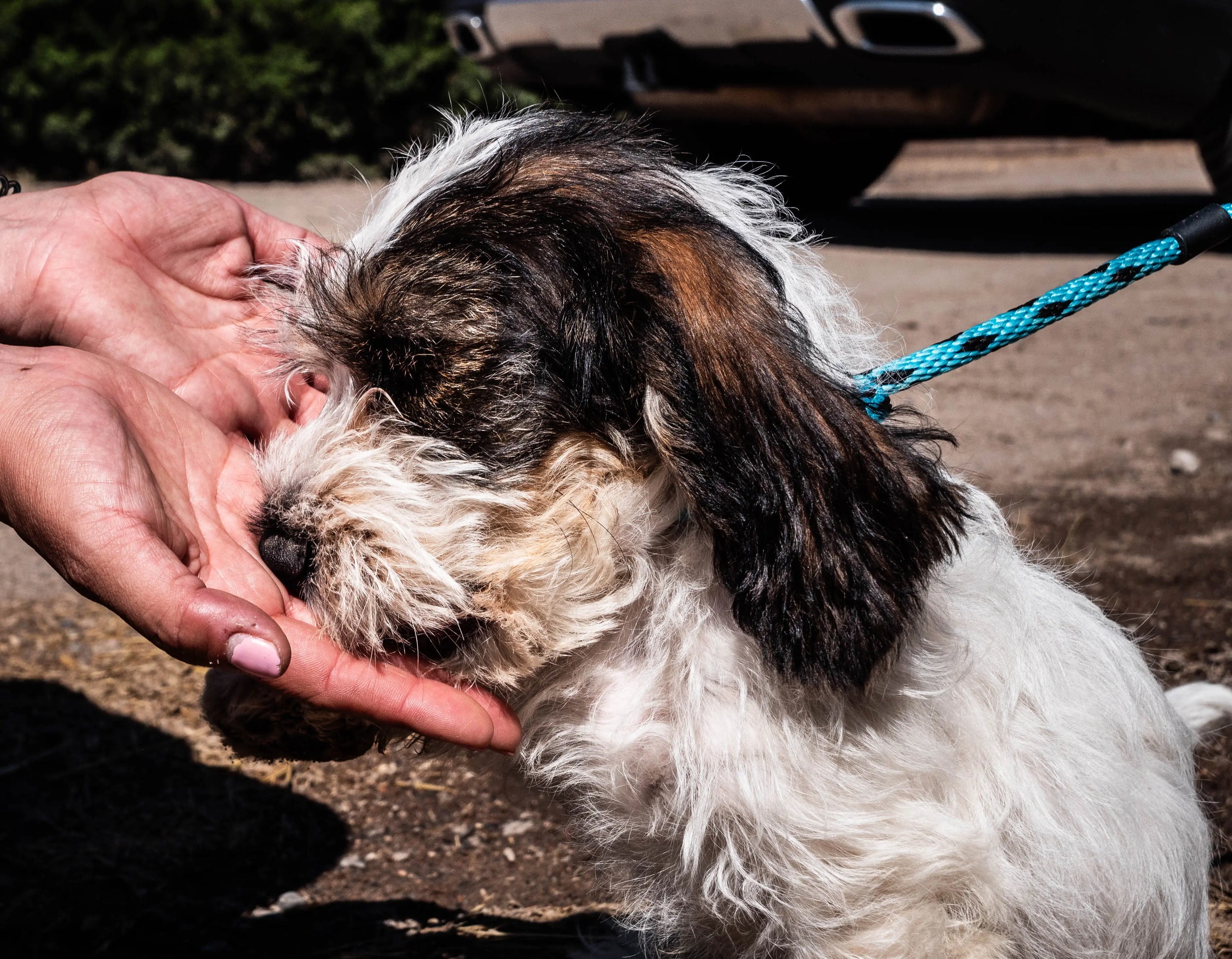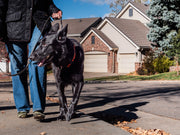Allergies in dogs are a widespread issue, affecting canine companions of all breeds and ages. Recognizing the signs of allergies in dogs early is crucial for managing them effectively. As a responsible pet owner, understanding these symptoms and knowing how to address them can significantly improve your dog's quality of life. This guide covers common dog allergies, their symptoms, and practical tips for managing them.
How Common Are Allergies in Dogs?
Allergies in dogs are surprisingly common and rank among the top reasons for veterinary visits. Many dogs will experience some form of allergy during their lives, whether triggered by environmental factors, food, or other allergens. Recognizing these signs of allergic reactions and seeking proper care is essential to keeping your dog healthy and comfortable.
Are Allergies in Dogs Inherited?
Yes, allergies in dogs can have a genetic component. Certain breeds are more prone to developing allergies due to their genetic makeup. While not all allergies are inherited, a dog’s genes can increase their susceptibility to allergic reactions, whether from their environment or diet.
Recognizing Dog Allergy Symptoms
Recognizing the signs of allergies early can make a significant difference in managing your dog’s discomfort. Here’s what to watch for:
-
Persistent Itchy Skin (Pruritus): Constant scratching, biting, or licking can be caused by allergic dermatitis. This relentless itchiness often targets the face, feet, and ears.
- Angry Skin Rashes and Hives: Red, inflamed patches and raised welts are signs of a skin reaction to allergens.
- Chronic Ear Infections: Recurrent ear infections may indicate underlying allergies. You might notice head shaking, scratching, or discharge from the ears.
- Runny Nose and Watery Eyes: Just like humans, dogs may experience these symptoms when exposed to allergens such as pollen or dust.
- Frequent Sneezing: If your dog sneezes more often, it could be due to airborne allergies.
- Paw Chewing and Licking: Excessive licking or chewing of the paws can be a sign of allergy-induced itchiness.
- Digestive Troubles: Food allergies can cause vomiting, diarrhea, and gas.
- Hair Loss and Bald Patches: Constant scratching or licking can lead to hair loss, particularly in targeted areas.
- Painful Hot Spots: Allergies can create inflamed areas of skin that can become sore and infected.
- Behavioral Changes: Irritability or restlessness may indicate discomfort from allergies.
Common Types of Allergies in Dogs
Dogs can suffer from various allergies, each with its own triggers and symptoms:
Food Allergies
Symptoms: Itchy skin, chronic ear infections, digestive issues, and inflamed skin.
Management: Implementing an elimination diet can help identify offending allergens. Hypoallergenic diets are often recommended to manage symptoms.
Environmental Allergies
- Symptoms: Sneezing, itchy skin, watery eyes, and nasal congestion.
- Management: Regular grooming and bathing with medicated shampoos can help remove allergens from your dog's fur. In severe cases, allergy shots or immunotherapy may be recommended.
Flea Allergy Dermatitis
- Symptoms: Severe itching, hair loss, and red, inflamed skin caused by flea saliva.
- Management: Regular use of flea preventatives and maintaining a clean environment can help prevent flea bites and reduce symptoms.
Contact Allergies
- Symptoms: Red skin, itching, dermatitis, and facial swelling.
- Management: Identifying and avoiding contact allergens is crucial. Hypoallergenic shampoos and protective clothing can help reduce exposure.
Skin Allergies in Dogs (Atopic Dermatitis)
- Symptoms: Persistent scratching, licking, biting, hot spots, hair loss, and secondary skin infections.
- Management: Minimize exposure to allergens, and consider allergy shots or medications for severe cases.
Managing Dog Allergies
Managing dog allergies requires a multifaceted approach tailored to the type and severity of the allergy. At Pure Peak, we understand that proactive care is key to improving your pet’s well-being. With our commitment to innovative wellness solutions, we believe in taking a compassionate, comprehensive approach to managing your dog’s allergies. Some common strategies include:
- Avoidance of Allergens: Identify and minimize exposure to allergens, whether in food or the environment.
- Medications: Veterinarians may prescribe antihistamines, corticosteroids, or immunosuppressive drugs to relieve symptoms. Additionally, newer options that work with your dog’s immune system with limited side effects are also now available.
- Immunotherapy: Allergy shots can help reduce the severity of symptoms over time by building tolerance to specific allergens.
- Dietary Management: Hypoallergenic or novel protein diets can help manage food allergies.
- Flea Control: Consistent flea prevention is critical for managing flea allergy dermatitis.
Diagnosing Allergies in Dogs
Diagnosing allergies in dogs often involves physical exams, allergy testing, and dietary trials. Blood tests and skin tests can help identify specific allergens. For food allergies, an elimination diet is typically used to determine the cause of the allergic reaction. Consulting with your veterinarian is essential to accurately diagnose and manage your dog's allergies.
Preventing Allergies in Dogs
While you can't completely prevent allergies, you can reduce the risk and severity of reactions:
- Regular Grooming: Bathing and brushing your dog helps remove allergens from their coat.
- Healthy Diet: A balanced diet supports immune health.
- Clean Environment: Regular cleaning of bedding and living areas can reduce environmental allergens.
- Monitor Health: Stay alert to early signs of allergies and consult your vet for regular check-ups.
Caring for a Dog with Allergies

Allergies can significantly impact your dog’s quality of life, but with proper care, their symptoms can be managed effectively. Avoiding allergens, using prescribed medications, and maintaining a healthy diet are key strategies for keeping your dog comfortable. At Pure Peak, we believe that every dog deserves a life free from the discomfort of allergies. By addressing allergies with a holistic, proactive approach, you can ensure your dog leads a happy, healthy life.
Frequently Asked Questions (FAQs)
Can allergies cause behavioral changes in dogs?
Yes, allergies can cause behavioral changes in dogs due to the discomfort they experience. Restlessness, irritability, and decreased energy levels are common signs. If your dog seems less active or shows signs of frustration, it may be due to itching, pain, or other allergic symptoms.
Are certain dog breeds more prone to allergies than others?
Yes, certain breeds like Golden Retrievers, Bulldogs, and German Shepherds are more prone to developing allergies. These genetic predispositions make them more susceptible to food and environmental allergens, so monitoring for early symptoms is key to effective management.
How can I tell if my dog’s skin issues are due to allergies or something else?
It can be difficult to tell the difference between allergies and other skin conditions like infections or parasites. Common signs of allergic reactions include itching, redness, and inflammation that persist even after treatment for other conditions. A visit to your vet and allergy testing can help determine if allergies are the underlying cause.



